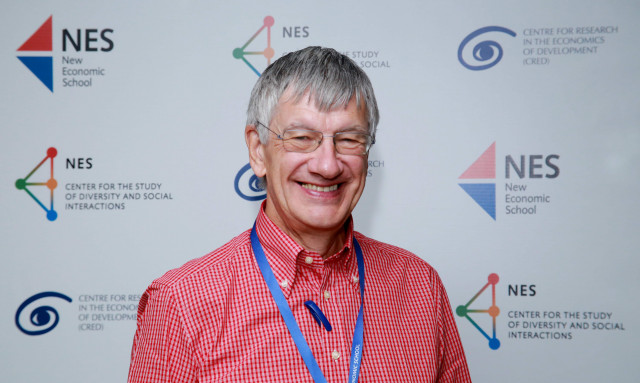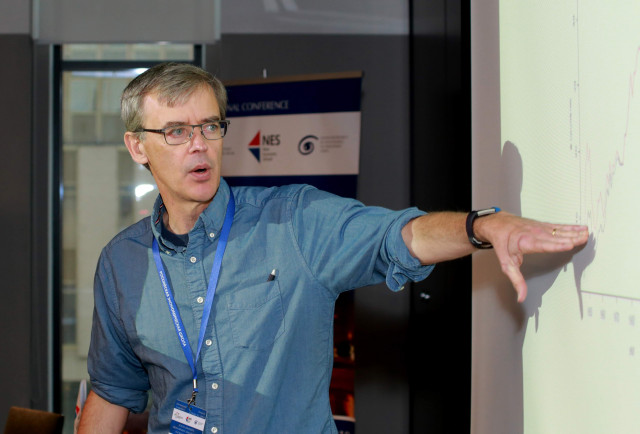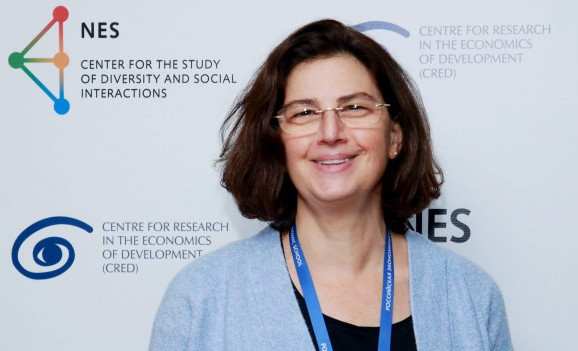The topic of identity belongs to one of the most important ones in the context of social diversity. "It is a theme which, currently, is capturing a lot of attention all over the world. In the past, identity-related issues were considered a problem for underdeveloped countries, primarily, but, recently, they turned into one of the most important topics of public and scientific discussion in the USA and Europe. This subject is deeply interlinked with modern economics and politics putting it in the focus of academic attention", – said NES Rector Ruben Enikolopov.
On October 4 and 5, the International conference "Social Diversity, Development and Stability: The Role of Context" took place in Moscow gathering social and political scientists from Russia, Europe, the USA, and other regions. The event addressed questions of how and under what circumstances social diversity becomes an issue for development and stability, and how the underlying dynamic works, in particular, the feedback effect on institutions.
On the first day, Professor at Stanford James Fearon presented his work “Notes on analyzing ethnic groups and ethnic conflict”,’ and Professor at Stanford David Latin talked about his study on “Language Policy and Human Development”. Marta Reynal Querol, Professor at Pompeu Fabra University discussed her research on “Ethnic diversity and growth: revisiting the evidence”, and Moses Shayo, Professor at Hebrew University of Jerusalem talked about a topic of “How Do We Choose Our Identity? A Revealed Preference Approach Using Food Consumption”. Further, Professor at the Southern Methodist University Klaus Desmet discussed with the colleagues his work on “The Cultural Divide”, and NES Rector Ruben Enikolopov – his report on “Homophily and the Formation of Online Social Networks”.
On the second conference day, Professor at Duke University Rachel Kranton presented her study on the topic: “Deconstructing Group Bias in Social Preferences”, and Professor at Delhi School of Economics Rohini Somanathan talked about his research “The Mis-measurement of Social Differences”. Moreover, Ignacio Ortuno-Ortin, Professor of Universidad Carlos III de Madrid shared his view on the theme of “Social Diversity and Identity. An International Comparison”, and Marcel Fafchamps, Professor at Stanford made a presentation on “The Behavioural Foundations of Market and Non-Market Exchange”.
A series of other excellent speakers took part in the conference, presented their research to the audience and discussed the key points.
We talked to some of the participants about their studies and their impressions of the event. Interview highlights below:
 Organizer, honored professor of the University of Namur Jean-Philippe Platteau
Organizer, honored professor of the University of Namur Jean-Philippe Platteau
Your scientific cooperation with NES has a long history. Why is this work so important to you? For what reason are you co-organizing NES conferences and other events for researchers and students?
I had always taken interest in Russian history, culture and actual developments in the country. That's why I am really glad to cooperate with a Russian university. While I had been looking for appropriate partner in Russia for the University of Namur where I am working for, I almost immediately realized that the New Economic School meets all our expectations – it provides a world-class social and economic research, a deep and interesting scientific discussion and has talented and promising students who receive a first-class education.
Could you please tell me about key joint projects with NES which have been implemented recently? What is your impression of them?
The Center for Research in Economic Development of the University of Namur (CRED) closely cooperates with the NES Center for the Study of Diversity and Social Interactions. Our teams have common scientific interests – they research conflicts, social diversity and identity issues. I highly appreciate that thanks to such kinds of international scientific conferences, colleagues from Russia and Belgium get the chance to know each other and to network.
And now about prospects. Are you planning any new initiatives with NES?
We intend to intensify the cultural and scientific exchange between students and employees of NES and the University of Namur. Last year, Russian students visited our university and it was a very successful experience. Recently, our Center received financial support from the European Union, and we are planning to direct these funds for the organization of educational trips. In my opinion, it's crucially important to arrange an exchange between Russian and Belgian students and scientists so that people could communicate and share their experiences and ideas. Active contacts between people and the implementation of joint projects help avoid mutual prejudices and contribute to the developing of science.
Professor at Duke University Rachel Kranton
Could you please briefly tell me what was your presentation about?
In my report, I was talking about a series of laboratory experiments dedicated to group bias. I and my team got several interesting results. According to our research, prejudices that are often inherent to group members can arise not as a result of group division itself. Individual predisposition to biases can be caused by her or his own need for group affiliation and self-identification with group's features. This predisposition can be developed to a different extent by different people.
What subjects in the sphere of social diversity do you consider the most relevant today?
In my opinion, we have to study the specificity of the interactions between social groups and their impact on the occurrence of conflicts and political processes. We see that the current political situation in many countries is determined by clashes between different groups within one society. We have to identify the cause and triggers of these current developments.
 Professor at Stanford University James D. Fearon
Professor at Stanford University James D. Fearon
Why did you decide to come to Moscow and participate in the conference?
I was really glad to receive an invitation from organizers and Professor Shlomo Weber, whom I know personally. In fact, for many years, I have been studying one of the key topics of the conference – economical and political impact on cultural diversity. Besides, this invitation was a good occasion for me to visit Moscow where I have never been before.
What are you impressions?
The conference gathered outstanding speakers with similar scientific interests. For me as a political scientist, it was highly useful to share ideas with economists which are working on the same problems as me – social and economic diversity, conflicts and economic growth. I observe a significant progress in this scientific sphere since 1990s when I started working in this research area.


